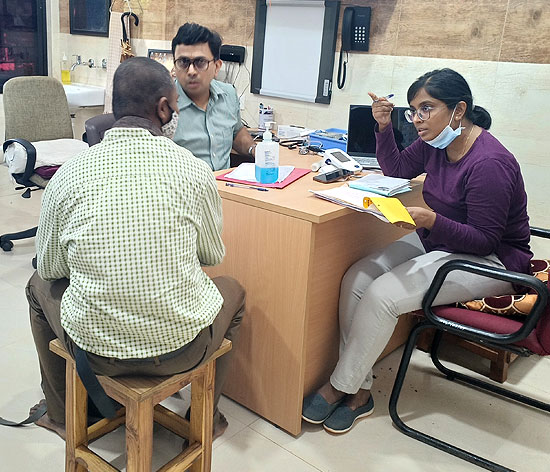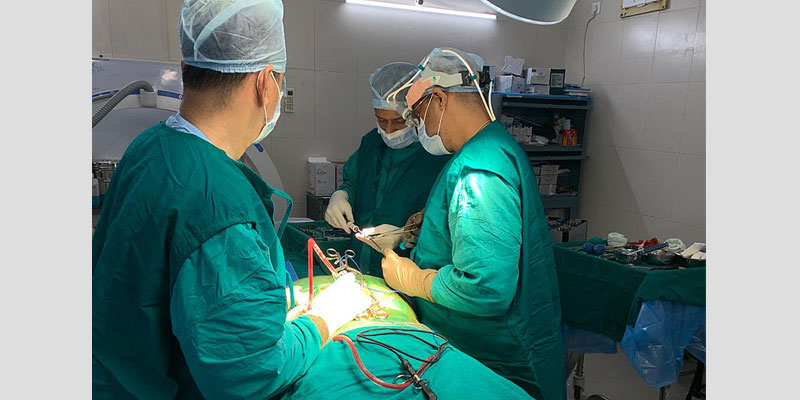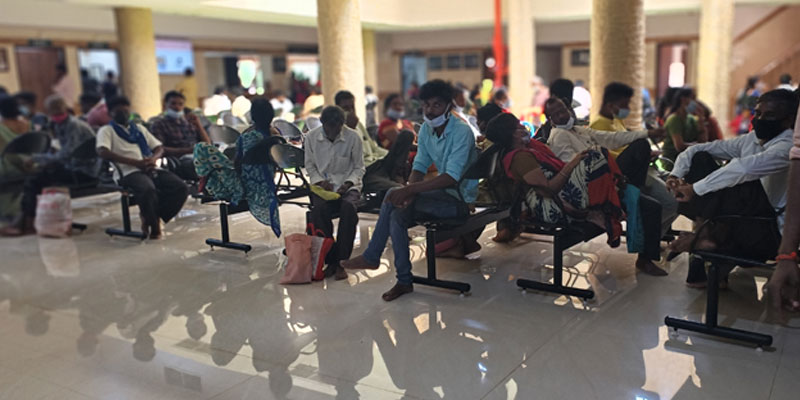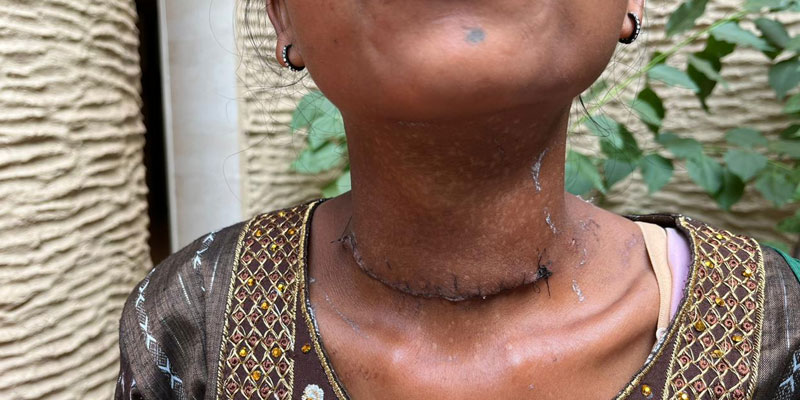
When 25-year-old Tikeshwari developed a large, irregular swelling on her neck, she had nowhere to go but to the local village healer, who cauterised the swelling by applying hot metal. The treatment not only did not give Tikeshwari any relief, but it also left small, dotted burn marks on her skin.
Tikeshwari lives in Barda, a village near the tehsil of Pakhanjur, Chattisgarh, close to the Maharashtra border. The village has very limited access to hospitals or even primary healthcare centres and the villagers’ only recourse was the local healer. As Tikeshwari’s experience proved, the healer’s treatment was not only ineffective but also unnecessarily painful.
Fortunately for Tikeshwari, her maternal uncle worked in a district that was covered by the Society for Education, Action and Research in Community Health’s (SEARCH) Mobile Medical Unit (MMU). Tata Trusts supported SEARCH in their efforts to provide affordable healthcare locally to rural and tribal people and empower them to take control of their own health. Its MMU teams – comprising doctors, nurses and pharmacists – visit two villages every day to provide free, quality healthcare to those living in remote tribal villages scattered within dense forests. Speaking to the medical officers from one such MMU, Tikeshwari’s uncle learnt about SEARCH and its hospital in Gadchiroli. The medical team believed that a trip to the hospital would be of great help to his niece.

A year had passed since Tikeshwari’s visit to the village healer. There had been no other treatment in the interim period. With no diagnosis and no other treatment available, the hospital seemed to be her only option. At SEARCH’s Maa Danteshwari Hospital, Gadchiroli, Tikeshwari was diagnosed with Goitre – an enlargement of the thyroid gland, which is responsible for metabolism. She was prescribed medication to control the thyroid function and offered a chance of an operation to remove the goitre. Tikeshwari grabbed the opportunity – while the goitre was not causing her any pain, she was self-conscious about the way it looked. Her condition had also impeded her education – her classmates often questioned her about it at school, and she stopped attending classes because their questions made her uncomfortable.

Tikeshwari had her goitre operated upon at one of SEARCH’s Ear, Nose and Throat surgery camps. Post-operation, she was shifted to the hospital’s Inpatient Department, where she was closely monitored. The entire procedure and post-op care went smoothly, and Tikeshwari recovered comfortably.
SEARCH allows family members to spend time with patients during the day, stay at the hospital overnight, and prepare food for patients in a facility provided on the hospital premises. These facilities were started by SEARCH to remove the alienation that rural and tribal communities feel within the mainstream healthcare system and sometimes which was the reason for them not seeking healthcare.

Now fully recovered, Tikeshwari plans to resume her academic studies; she’s keen on getting a graduate degree in Biology, post which she hopes to become a teacher. Tikeshwari’s story had a happy ending, but it also sheds light on the multiple obstacles that blocked her path to access safe, adequate medical care.
